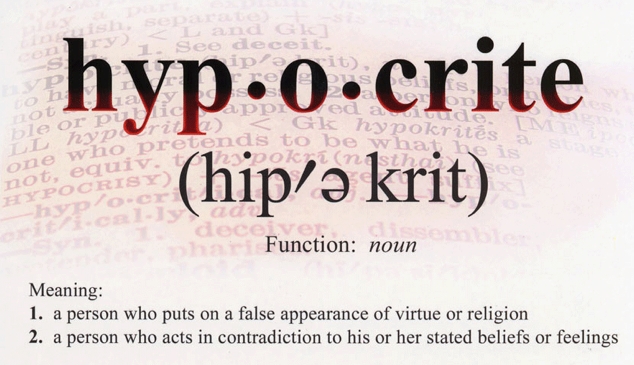Search
Democracy Links
Member's Off-site Blogs
poetic justice .....

Iron-ore magnate Andrew "Twiggy" Forrest is fighting attempts to exploit the mineral wealth under his own cattle station in the Pilbara.
Mr Forrest, 51, founder and executive chairman of Fortescue Metals Group, is suing to block attempts to search for uranium on his Minderoo Station and last month failed in an attempt to halt sand mining on the property.
Minderoo was established in 1878 by his great, great uncle, Sir John Forrest, first premier of Western Australia, and his brothers Alexander and David.
In his younger days, Mr Forrest worked as a jackaroo on the family property, but it was sold in 1998 to repay debts. He bought it back in 2009.
Mr Forrest, who has amassed a $5.5 billion fortune supplying China's steel mills, is almost two years into what are likely to become even more protracted legal proceedings.
"In Australia, by law, you only own the top metre. Everything underneath, that is owned by the people of Australia," Peter Strachan, a resources analyst at Perth-based StockAnalysis, said.
"If someone puts in a request to explore on your land, you have to deal with that and make sure you're compensated for access."
Groups seeking access to private land in Western Australia must seek the approval of the Warden's Court, which deals with disputes over and applications for mining leases, and negotiate compensation with the owner.
In a January 22 ruling, Warden Stephen Wilson described one of Mr Forrest's proposed development conditions for sand mining on his property as "outrageous," suggesting he was seeking "dictatorial power".
Mr Wilson rejected objections filed by Mr Forrest's private company, Forrest & Forrest, to the sand-mining venture at Minderoo proposed by closely held Yarri Mining.
Yarri plans to use the sand in the construction of natural gas projects being developed by BHP Billiton and oil company Chevron.
One of Forrest's proposed conditions was an annual payment of a performance guarantee by Yarri of at least $200,000, Mr Wilson said in the ruling.
"The proposed condition appears to be an attempt to create some form of dictatorial power that allows it to act as the investigator, prosecutor, judge and enforcer of the provisions of the Mining Act when it has no power to do so," the warden said.
Mr Forrest's private company also argued against the mining-sand application, partly on the grounds that machinery noise may scare cattle on the 226,000-hectare property.
The Pilbara region is home to Australia's and Fortescue's iron ore mines that have driven the nation's mining boom.
Yarri proposes to use only about 140 hectares for sand production, about 0.06 per cent of the total area, according to the ruling.
"Forrest & Forrest is disappointed at the Warden's decision to allow sand mining by Yarri Mining within the historical and environmentally fragile parts of Minderoo pastoral station," the company said.
Mr Forrest can appeal against the decision to the Environmental Resources and Development Court or ask West Australian Mines Minister Norman Moore directly to overturn the ruling.
Mr Forrest is also fighting on a second legal front. Cauldron Energy, chaired by another mining entrepreneur, Tony Sage, applied for exploration licences over some of Minderoo on April 4 for its Yanrey uranium project. Forrest & Forrest filed objections on May 8. A hearing date has not yet been set.
Holders of other pastoral leases in the area have not objected to Cauldron's application, said Colin Jacoby, a spokesman for the company.
In another twist, Fortescue Metals itself has applied to explore for minerals at Minderoo and holds six pending applications, according to the West Australian Department of Mines.
Forrest & Forrest withdrew its initial objections to those applications, the department said.
Mr Forrest has close emotional ties to Minderoo – his father Donald had to sell the property in 1998 because of drought and mounting debt. It was not until after founding Fortescue, which made its first iron ore shipment in 2008, that Mr Forrest was able to buy it back for $12 million in 2009.
Mr Forrest started his education there on the School of the Air, using a short-wave radio, and later worked on the property, about 1150 kilometres north of Perth as a jackaroo.
"Andrew has a long history of jackarooing and working with the Aboriginal people in that part of the country," Mr Strachan said.
"He doesn't want to risk that some of it would be spoilt by mining gravel for the foundation of an LNG plant."
- By John Richardson at 27 Feb 2013 - 8:31am
- John Richardson's blog
- Login or register to post comments
Recent comments
3 min 48 sec ago
2 hours 5 min ago
4 hours 4 min ago
4 hours 14 min ago
4 hours 24 min ago
5 hours 18 min ago
5 hours 43 min ago
5 hours 51 min ago
6 hours 54 min ago
8 hours 40 sec ago